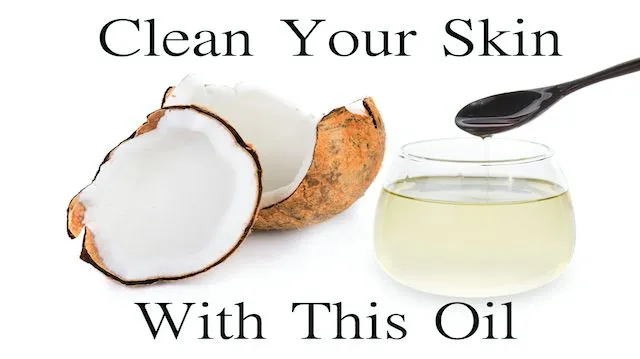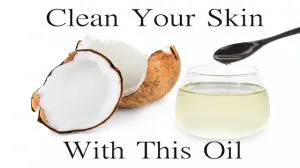
- Share on Facebook221
- Share on Pinterest
- Share on Twitter
Do you have oily skin that you’re constantly cleansing, dabbing with little absorbent wipes and buying expensive specialty products for?
Maybe you have acne and have tried countless spot treatments, washes and medications that fail to stop the onslaught of bumps and inflammation.
Or your skin might be dry and sensitive, reacting to anything you apply to it and constantly looking a little bit unhealthy.
Personally I have a crazy combination of all three. I find that my chin and nose areas are pretty oily, my forehead and cheeks are quite dry, and I tend to have breakouts of acne once in a while, particularly if I’m not taking good care of myself.
I used to spend piles of cash and hours in the drugstore reading the backs of bottles and trying to find the best product for my difficult skin. I even tried extra-strength acne-fighting wipes, expensive pharmaceutical-grade cleansers, and putting weird things like toothpaste on pimples.
This all culminated in a trip to the doctor’s office with angry red patches of eczema on my eyelids that were extremely sore. I had over-dried the delicate skin in an attempt to ward off acne and gone way too far!
I have to say, all of that effort and expense was in vain. If only I knew then what I know now. There is one ancient, nearly-forgotten skin cleansing technique that can bring balance to every skin type, regardless of whether it’s oily, dry, sensitive or acne-prone, and I’m about to share it with you in this article.
The main thing you should be using to clean your face and maintain the quality of your skin is not water, not soap, not cleansing gel, but oil! Pure, unrefined, organic oils, such as coconut oil, apricot kernel oil, castor oil, olive oil or hazelnut oil.
But wait a minute, isn’t oil exactly what we want to AVOID putting on our faces?
You might have spent a lot of time and money avoiding exposing your face to any excess oil. Typical skin-care marketing often emphasizes “oil-free” moisturizers and non-comedogenic cleansers. You might have even bought some “mattifying” makeup to avoid those dreaded shiny spots in photos.
I will admit I have actually shelled out my hard-earned dollars on those silly little rubbery “blotting cloths” that you dab on your face to remove oil and shine.
But in fact, expert research shows that applying oil to the skin does nothing but cleanse and nourish a healthy complexion.
When we wash with mainstream soaps and cleansing agents, the protective layer of the skin, called the acid mantle, is often damaged and dried out, and sebum is removed. The skin is left effectively stripped of its natural oils due to cleansers that are too harsh for delicate facial skin and don’t take the skin’s natural pH level into account.
Have you ever had that “tight” feeling after washing your face? This is what I’m talking about. That’s the moment when you scramble to apply over-priced specialty facial moisturizer (that actually contains any number of toxic ingredients) so that your face feels balanced again.
Meanwhile the skin doesn’t actually recognize what is happening — all it knows is that its oils have been stripped. Replacing the natural oils with some synthetic moisturizer isn’t the same thing; the skin will over-react by stepping up the production of its own endogenous moisturizing agents and sebum. A few hours later you’re dabbing your face with those silly little cloths again.
This effectively describes the merry-go-round that most of us put our faces through every day. Dr. Ben Johnson, founder of Osmosis Pur Medical Skincare, says that when you use too many harsh products on your face, “you’re actually removing the protective barrier that your skin has.” He says, “Once removed, your skin is exposed to environmental toxins and sun damage, causing aging.”
That’s where oil cleansing comes in
Have you ever heard of the scientific concept “like dissolves like”? For example, a water-based substance will easily mix with another water-based substance, while oil and water don’t mix. This is exactly why oil cleansing works — applying oil is the perfect way to gently remove excess dirt, sebum and dead skin, while not stripping the healthy amount that must remain.
Oil cleansing also removes makeup, which is usually oil-based. Long-lasting lipsticks, lip stains, and waterproof mascaras are easily removed with the gentle action of coconut oil.
This is as opposed to when we use water to wash our faces, and need a detergent or surfactant to act as a go-between for the water and our facial oil or makeup.
Oil cleansing is ancient
It turns out the ancient Romans were onto this concept many centuries ago. They would apply olive oil to the skin and then use a scraping tool called a strigil to remove the oil and dirt from the surface of the skin.
Like so many other forgotten self-care and health practices, wise people are now recognizing this ancient wisdom and starting to use these regimes again. We are starting to recognize that natural substances are best for preventing and fixing skin damage.
Oil doesn’t only clean the skin
While oil provides a perfect vehicle for removing excess gunk and dirt, it also works as an excellent moisturizer and provides nourishment for the skin. This can help with many issues, such as acne, blackheads, milia, poor skin tone and signs of aging. Some oils even provide a gentle natural form of sun protection. Users with moderate acne have found that oil cleansing can help clear and balance the skin in under a week.
Here are some of the best oils you can use for oil cleansing:
Normal to dry skin—Try argan, shea oil or organic coconut oil, which are gentle and nourishing. You could mix a small amount of these “superfood” oils with a more affordable oil, such as the oils you use in your kitchen. Look for extra-virgin, cold-pressed oils that still have their antioxidants intact. Olive or walnut oils are also great for the face.
You can even come up with your own combinations, such as half coconut oil and half olive oil mixed up in a blender to make a luxurious and creamy cleansing blend. Adding small amounts of essential oils such as frankincense and lavender will also help balance and feed the skin.
 Oily skin—Use castor oil or rosehip oil with a drop or two of tea tree or peppermint essential oil added. These oils have astringent properties that help calm the oil production of the skin.
Oily skin—Use castor oil or rosehip oil with a drop or two of tea tree or peppermint essential oil added. These oils have astringent properties that help calm the oil production of the skin.
I recommend mixing up small batches of different types of oils so that you can try them out without wasting a large amount of ingredients. Start with maybe a 1/2 teaspoon of an oil you’re trying. If it works, you can make a larger batch so that it’s ready to go by your sink.
You will find that your face feels clean, smooth and nourished. You probably won’t need to apply any moisturizer, but if you do then a tiny amount of a light oil such as apricot kernel, sweet almond or hemp seed can be applied afterward.
It’s a great idea to finish this routine with a toner made of one part raw apple cider vinegar mixed with ten parts distilled or filtered water. Simply apply this to a cotton ball and smooth over the face. This will help tighten pores and balance skin tone.
How to oil-cleanse your face
So how do we do it? Many people have varying methods for oil cleansing, and you might need to do a little bit of experimentation to find the perfect way that works for you.
Step 1: Grab a soft, clean washcloth and wet it thoroughly with hot water (not hot enough to be scalding). Then wring it out well, and place it over your face. Let it sit for about 20 seconds.
Step 2: Grab your oil of choice and apply a small amount all over your face, massaging it into the skin with gentle circular motions. Wait about 30 seconds. During this time, rinse your washcloth and get it ready with hot water again.
Step 3: Gently wipe the excess oil away with the hot washcloth.
Some oil cleansers recommend applying the oil to a dry face first, then laying the hot cloth on top. This is just another method you can try until you find what works best for your skin.
You may find there’s an adjustment period as you’re transitioning from your previous routine to oil cleansing. The deep-cleaning properties of natural oils may bring out toxic junk from your pores and you might have a break-out for a few days after you start oil cleansing. Just stick with it, and before too long, you will have gorgeous, younger-looking, nourished skin!
-Liivi Hess
Liivi is an Integrative Nutrition Health Coach and is training to become a doula. She inspires women to find peace and personal power by taking control of health and fertility naturally. Liivi‘spassion is ancestral nutrition and primal lifestyle design. She and her partner Will live between Toronto, Canada and Queenstown, New Zealand.
Sources:
http://onlinelibrary.wiley.com/doi/10.1111/j.1396-0296.2004.04S1002.x/abstract
http://link.springer.com/article/10.1007/BF00412626#page-1
http://www.karger.com/Article/Abstract/246568
http://informahealthcare.com/doi/abs/10.1080/09637480802549127
http://informahealthcare.com/doi/abs/10.3109/13880200903062614
http://onlinelibrary.wiley.com/doi/10.1111/j.1396-0296.2004.04S1003.x/abstract
http://www.bustle.com/articles/24800-20-skincare-mistakes-that-are-damaging-your-face
http://www.buzzfeed.com/alisoncaporimo/oil-cleansing#.qrLDA4Awa
http://wellnessmama.com/7569/skin-oil-cleansing
- Share on Facebook221
- Share on Pinterest
- Share on Twitter

